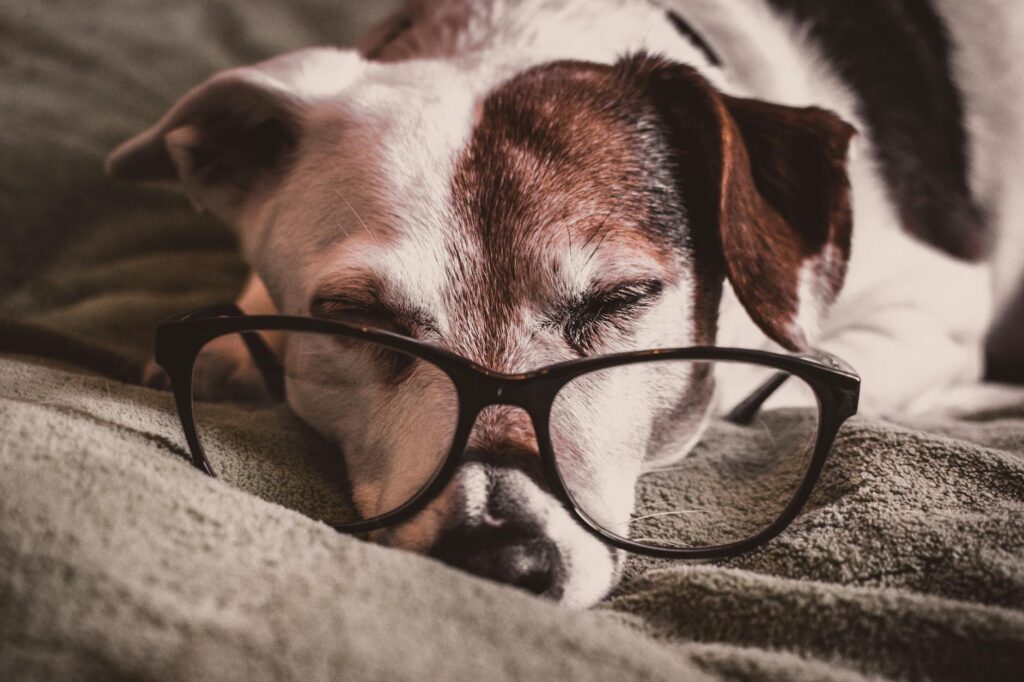
As our beloved senior dog companions age, they undergo various physical and behavioral changes that require our attention and care. Understanding these changes is crucial for providing senior dogs with the support they need to maintain their quality of life. In this blog post, we’ll explore the common changes that occur in senior dogs, including greying hair, loss of mobility, weight gain, and sensory changes like vision and hearing loss. By the end, you’ll have a better understanding of how to navigate your senior dog’s golden years with compassion and knowledge.
1. Physical Changes
Greying Hair:
One of the most visible signs of aging in dogs is the appearance of grey or white hairs on their coat. This change is natural and occurs due to the gradual loss of pigment-producing cells in the hair follicles. While greying hair itself is harmless, it serves as a visual cue that your dog is entering their senior years.
Loss of Mobility:
Senior dogs often experience decreased mobility, which can manifest as stiffness, difficulty rising, or reluctance to engage in physical activities they once enjoyed. These symptoms are commonly associated with conditions such as arthritis, which cause inflammation and pain in the joints. Providing supportive bedding, gentle exercise routines, and joint supplements can help alleviate discomfort and maintain mobility.
Weight Gain:
Weight gain is another common issue among senior dogs, often resulting from decreased activity levels and changes in metabolism. Obesity can exacerbate age-related conditions such as arthritis and heart disease. Monitoring your dog’s diet, adjusting calorie intake, and promoting regular, low-impact exercise are essential for managing weight and promoting overall health.
2. Sensory Changes
Vision Changes:
Aging can affect a dog’s vision, leading to conditions such as cataracts, glaucoma, and decreased night vision. Signs of vision changes include bumping into objects, reluctance to go down stairs, or cloudy eyes. Regular veterinary check-ups can help detect these issues early, allowing for appropriate treatment and management.
Hearing Changes:
Senior dogs may also experience hearing loss, which can manifest as difficulty responding to commands or loud noises. While complete hearing loss is common in older dogs, they can often adapt with visual cues and hand signals. Minimizing noise and providing a safe environment are important considerations for their comfort and safety.
3. Behavioral Changes
Cognitive Decline:
Cognitive dysfunction syndrome (CDS) is akin to Alzheimer’s disease in humans and affects many senior dogs. Symptoms include disorientation, changes in sleep patterns, and decreased interest in activities. Mental stimulation, structured routines, and veterinary-prescribed supplements can help manage cognitive decline and improve quality of life.
Changes in Activity Level:
As dogs age, they naturally become less energetic and may require adjustments in their exercise routines. Low-impact activities like swimming or short walks can help maintain muscle tone and joint flexibility without causing undue stress. Monitoring their energy levels and adapting activities accordingly will ensure they remain active and engaged.
4. Emotional and Mental Well-being
Anxiety and Stress:
Senior dogs may develop anxiety due to changes in routine, discomfort from health issues, or cognitive decline. Providing a calm and predictable environment, comforting routines, and using anxiety-reducing aids (like pheromone diffusers) can help alleviate their stress and promote emotional well-being.
Maintaining Mental Stimulation:
Engaging senior dogs in mentally stimulating activities such as puzzle toys, obedience training, and interactive games can help keep their minds sharp and enhance their overall cognitive function. Regular social interactions with familiar people and pets also contribute to their emotional health and happiness.
5. Nutrition and Diet for your senior dog
Special Dietary Needs:
Senior dogs have specific nutritional requirements that differ from those of younger dogs. A balanced diet rich in high-quality protein, essential fatty acids, and joint-supporting nutrients (e.g., glucosamine and chondroitin) promotes muscle maintenance, supports immune function, and aids in weight management. Consultation with a veterinarian can help tailor a diet plan that meets your senior dog’s individual needs.
Weight Management:
Maintaining a healthy weight is crucial for senior dogs to prevent obesity-related health issues and alleviate strain on joints. Portion control, choosing low-calorie treats, and incorporating weight management formulas or senior-specific diets can help achieve and maintain an ideal body condition score.
6. Healthcare and Regular Vet Visits for your senior dog
Importance of Regular Check-ups:
Regular veterinary examinations are essential for detecting age-related health issues early. Senior dogs should undergo comprehensive wellness checks at least twice a year, including blood tests, dental evaluations, and screenings for common geriatric conditions. Prompt intervention and management can significantly improve their prognosis and quality of life.
Managing Chronic Conditions:
Many senior dogs develop chronic health conditions such as diabetes, kidney disease, or heart disease. Monitoring their symptoms, administering prescribed medications, and implementing lifestyle modifications (e.g., dietary adjustments, exercise restrictions) as recommended by your veterinarian are essential for managing these conditions effectively.
Understanding the changes that occur in senior dogs, both physical and behavioral, allows us to provide them with the care and support they need in their later years. By recognizing signs of aging such as greying hair, loss of mobility, weight gain, and sensory changes, we can proactively address their evolving needs and ensure they enjoy a comfortable and fulfilling life. Remember, every senior dog deserves compassion, patience, and tailored care to thrive in their golden years.
If you notice any concerning changes in your senior dog’s health or behavior, schedule a veterinary appointment promptly. Your veterinarian can provide personalized guidance and support to help your dog navigate aging gracefully. Let’s continue to cherish our senior dogs and celebrate the joy they bring to our lives, every step of the way.
